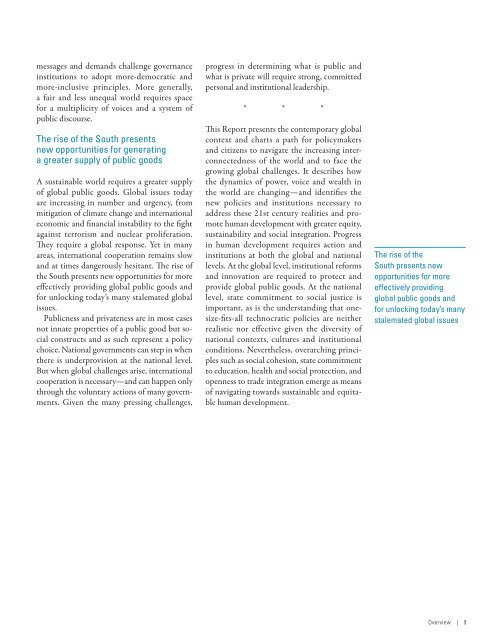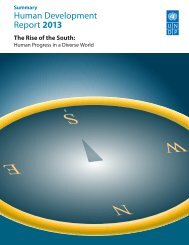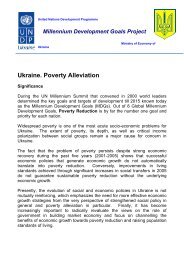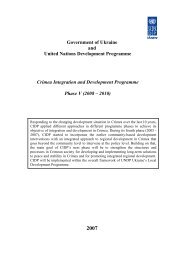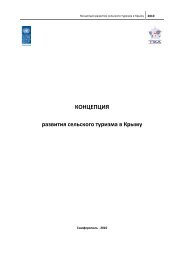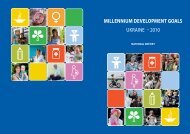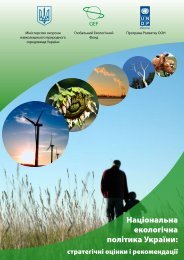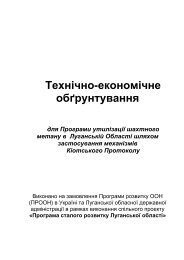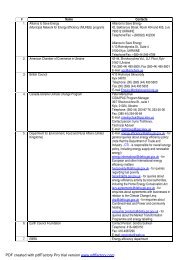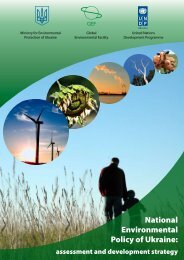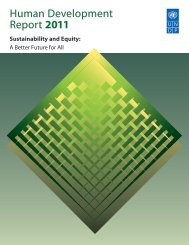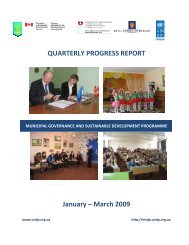E N S W - United Nations Development Programme
E N S W - United Nations Development Programme
E N S W - United Nations Development Programme
Create successful ePaper yourself
Turn your PDF publications into a flip-book with our unique Google optimized e-Paper software.
messages and demands challenge governance<br />
institutions to adopt more-democratic and<br />
more-inclusive principles. More generally,<br />
a fair and less unequal world requires space<br />
for a multiplicity of voices and a system of<br />
public discourse.<br />
The rise of the South presents<br />
new opportunities for generating<br />
a greater supply of public goods<br />
A sustainable world requires a greater supply<br />
of global public goods. Global issues today<br />
are increasing in number and urgency, from<br />
mitigation of climate change and international<br />
economic and financial instability to the fight<br />
against terrorism and nuclear proliferation.<br />
They require a global response. Yet in many<br />
areas, international cooperation remains slow<br />
and at times dangerously hesitant. The rise of<br />
the South presents new opportunities for more<br />
effectively providing global public goods and<br />
for unlocking today’s many stalemated global<br />
issues.<br />
Publicness and privateness are in most cases<br />
not innate properties of a public good but social<br />
constructs and as such represent a policy<br />
choice. National governments can step in when<br />
there is underprovision at the national level.<br />
But when global challenges arise, international<br />
cooperation is necessary—and can happen only<br />
through the voluntary actions of many governments.<br />
Given the many pressing challenges,<br />
progress in determining what is public and<br />
what is private will require strong, committed<br />
personal and institutional leadership.<br />
* * *<br />
This Report presents the contemporary global<br />
context and charts a path for policymakers<br />
and citizens to navigate the increasing interconnectedness<br />
of the world and to face the<br />
growing global challenges. It describes how<br />
the dynamics of power, voice and wealth in<br />
the world are changing—and identifies the<br />
new policies and institutions necessary to<br />
address these 21st century realities and promote<br />
human development with greater equity,<br />
sustainability and social integration. Progress<br />
in human development requires action and<br />
institutions at both the global and national<br />
levels. At the global level, institutional reforms<br />
and innovation are required to protect and<br />
provide global public goods. At the national<br />
level, state commitment to social justice is<br />
important, as is the understanding that onesize-fits-all<br />
technocratic policies are neither<br />
realistic nor effective given the diversity of<br />
national contexts, cultures and institutional<br />
conditions. Nevertheless, overarching principles<br />
such as social cohesion, state commitment<br />
to education, health and social protection, and<br />
openness to trade integration emerge as means<br />
of navigating towards sustainable and equitable<br />
human development.<br />
The rise of the<br />
South presents new<br />
opportunities for more<br />
effectively providing<br />
global public goods and<br />
for unlocking today’s many<br />
stalemated global issues<br />
Overview | 9


